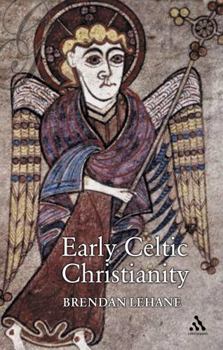Early Celtic Christianity
Select Format
Select Condition 
Book Overview
This lively and original account of early Celtic Christianity - which was of far greater importance in the development of Western culture than we commonly realize - is told against the background of European history of the first seven centuries A.D. It focuses on the lives of Saints Brendan, Columba, and Columbanus, who lived active and effective lives in the cause of the early Church. Brendan, one of the founding fathers of Christianity in Ireland, was known in legend as a voyager and was thought to have reached the Western Hemisphere long before the Vikings. Columba took Celtic Christianity to Scotland and helped to re-establish it in Wales and in the North and West of England. Columbanus was the great Irish missionary to continental Europe, where he and his followers helped to convert the heathen invaders from the East. When Rome, in the person of St. Augustine, Pope Gregory's apostle to the Angles, penetrated again to England, a showdown between Roman and Celtic Christianity was inevitable. The dramatic confrontation occurred at the Council of Whitby in 664. Rome, with its organization and authority, won, and Celtic Catholicism went into eclipse. But some of its influence persisted all over Europe, and it had a large share in shaping the culture that ultimately emerged from the dark ages. This book's fascination is the picture that it gives of the movements of peoples, the shaping of new countries, and the development of ideas during those too-little-known centuries.






